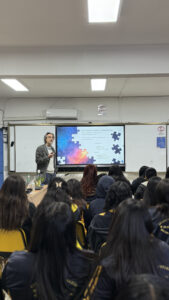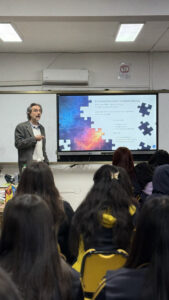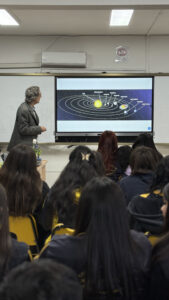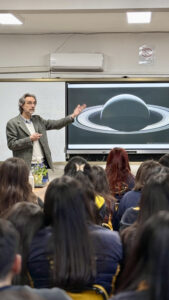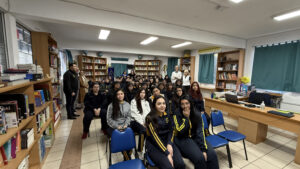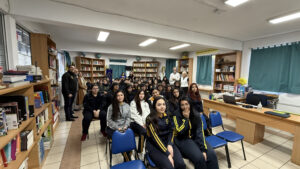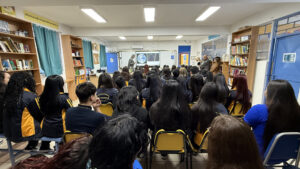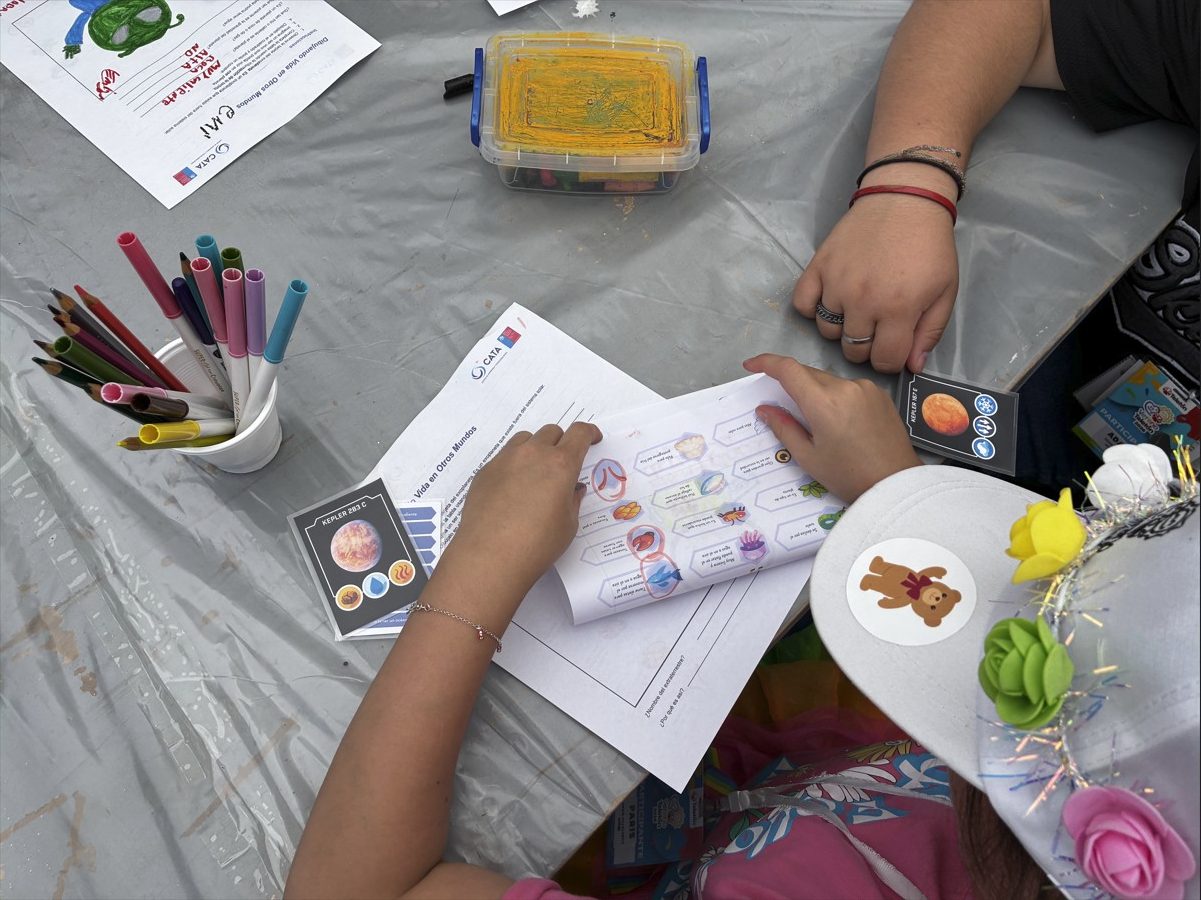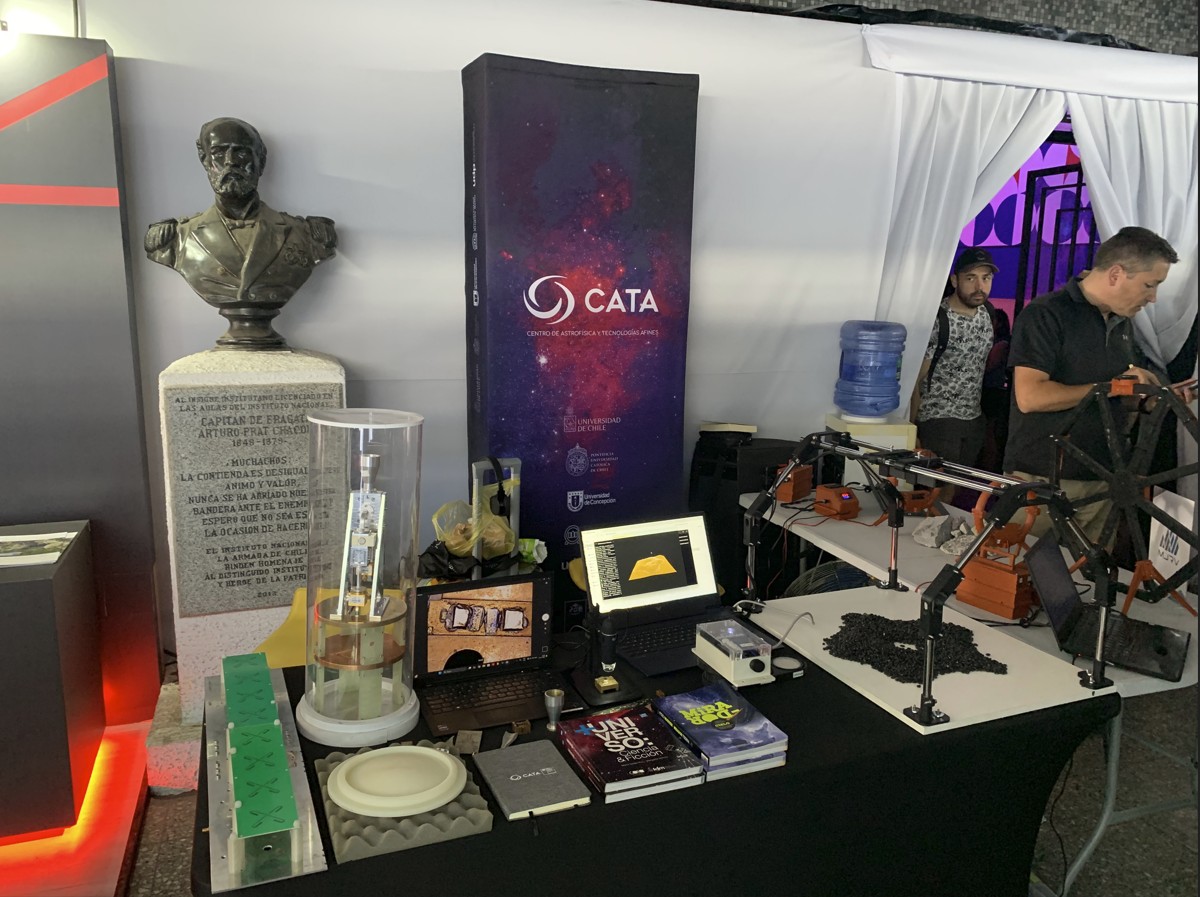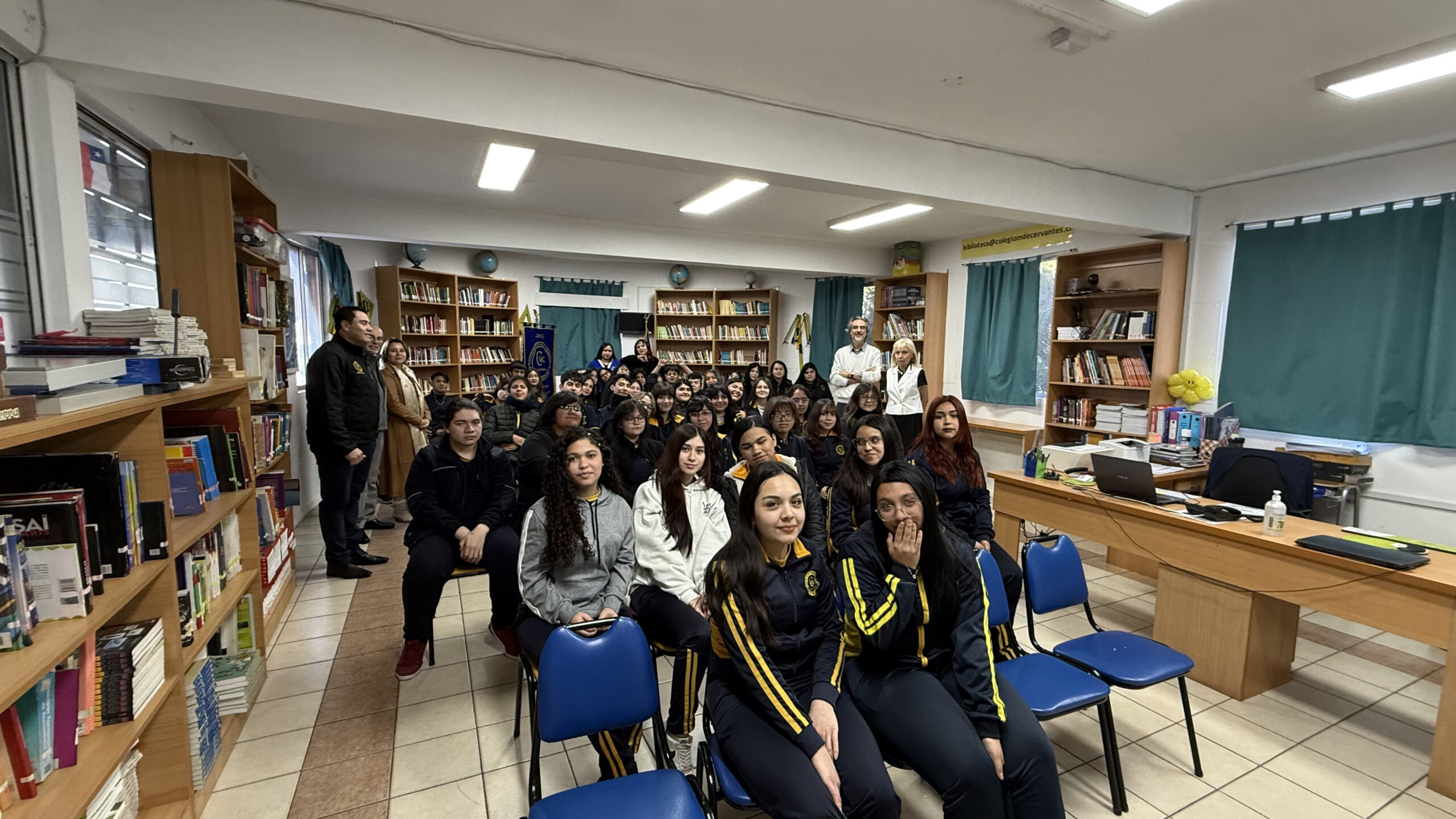
Students from Miguel de Cervantes School explored the mysteries of the universe alongside an astronomer from CATA
Leonardo Vanzi, Associate Researcher at the Center, visited La Cisterna School to give a talk on questions about the universe.
As part of its outreach program, the Center for Astrophysics and Associated Technologies (CATA) (ANID Basal Center) visited the Miguel de Cervantes Bicentennial School of Excellence in the municipality of La Cisterna. Leonardo Vanzi, Associate Researcher at our Center and professor at the Catholic University, gave a talk. “The Universe as a puzzle: pieces that are missing or don’t fit into our vision of the cosmos.” The activity was attended by 56 students, mainly from secondary schools.
The event sought to present the big questions that astronomy is still trying to answer, as well as to motivate young people to take part in future scientific challenges. “The idea was to talk about some questions that currently have no answer and end by showing how the large telescopes of the future will be able to help solve these mysteries, inviting students to be part of this challenge,” explained the researcher.
The meeting generated active participation among attendees. “It’s always a challenge to capture the attention of a group of teenagers, because you never know what you’re going to encounter in terms of their interests and preparation. In this case, a very good conversation ensued, with insightful questions about life on Earth and beyond, the origin of the universe, and even what lies beyond it,” said Leonardo Vanzi.
The school valued the experience and the impact it had on the educational community. “From the very beginning, the attention and interest of the young people was evident. The presence of an internationally renowned scientist aroused not only curiosity, but also admiration and profound questions that showed how much potential there is when they are given the opportunity to explore knowledge from other perspectives,” said school officials.
Along the same lines, Leonardo Vanzi emphasized the importance of scientific institutions connecting with schools. “I believe that astronomy is an essential discipline in people’s education, so it is vital to strengthen its presence in school curricula. Getting to know those of us who work in this field allows for greater engagement, and I always find tremendous interest in the schools I visit,” added the researcher.
The day ended with widespread enthusiasm among the students, who expressed their interest in continuing to learn about the universe and its mysteries. The school emphasized that these types of events help spark scientific vocations: “The fact that institutions such as CATA reach out to schools is a profoundly democratizing gesture: it brings science closer to the community, breaks the logic that only some can access this knowledge, and generates new ways to inspire scientific and technological vocations.”
Recent news
-
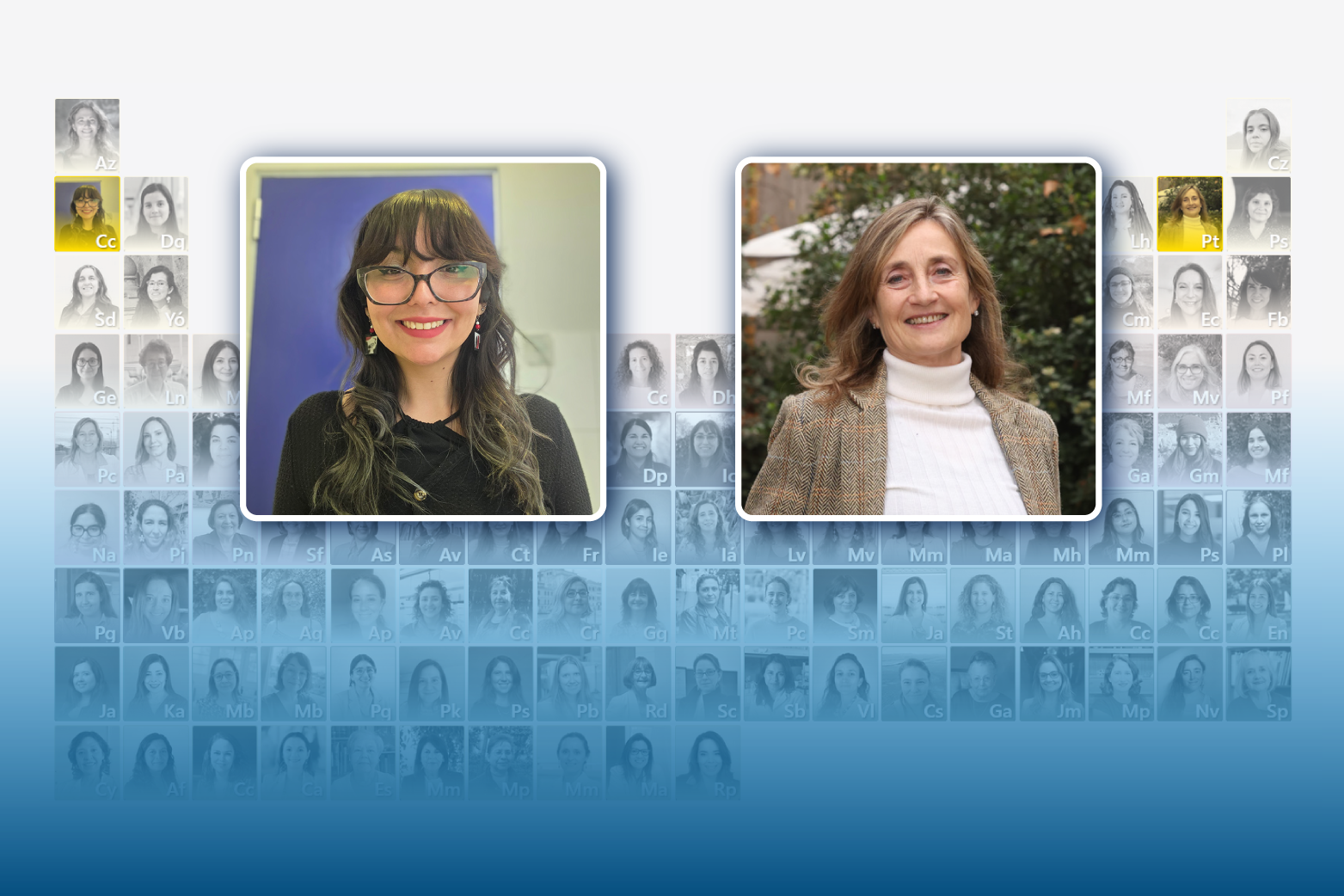 Publicado el: 17/02/2026The National Congress Library highlights CATA researchers in its second edition of Chilean Women Scientists
Publicado el: 17/02/2026The National Congress Library highlights CATA researchers in its second edition of Chilean Women Scientists -
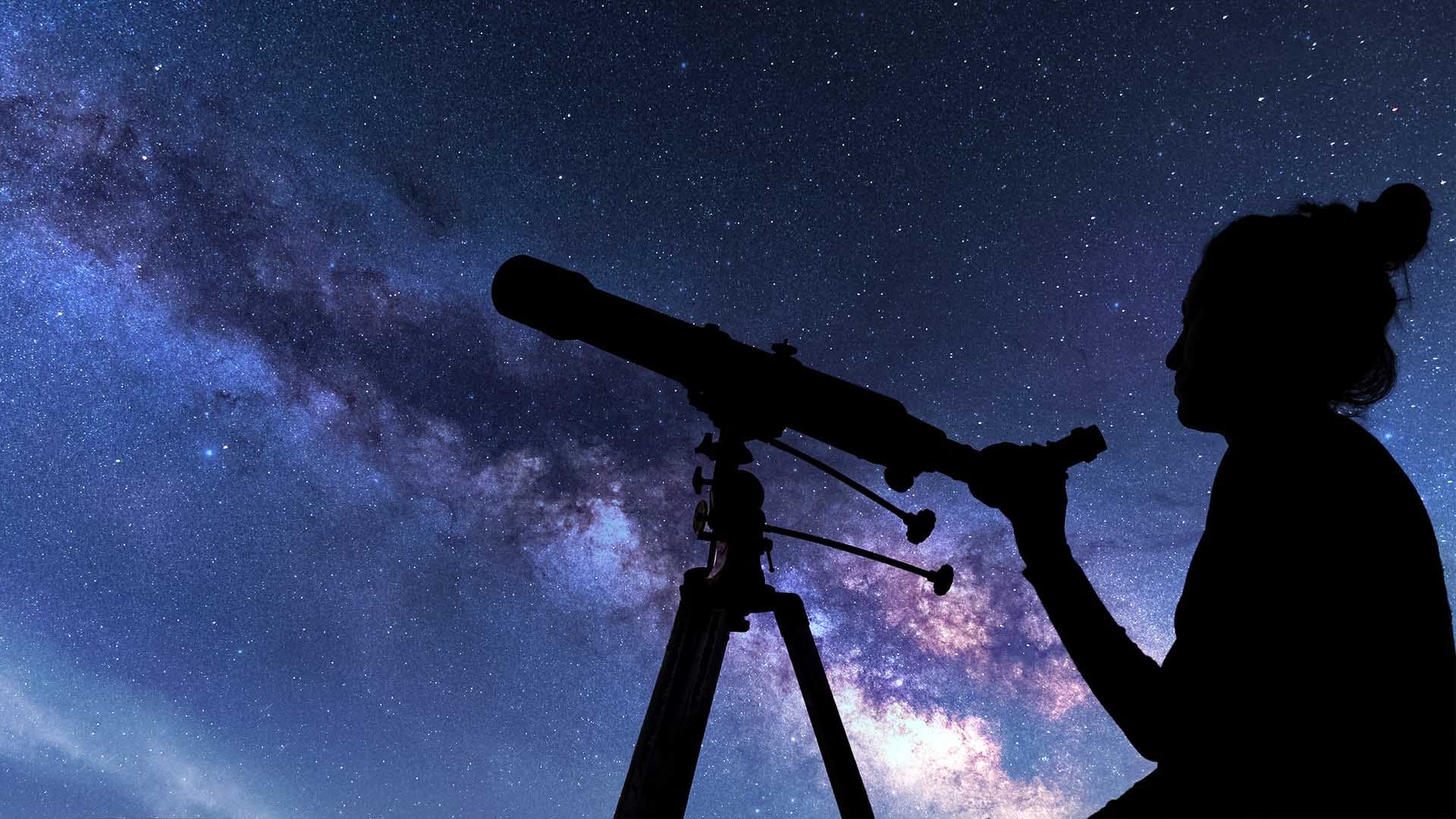 Publicado el: 11/02/2026Science with a woman’s face: gaps, vocations, and pending challenges
Publicado el: 11/02/2026Science with a woman’s face: gaps, vocations, and pending challenges -
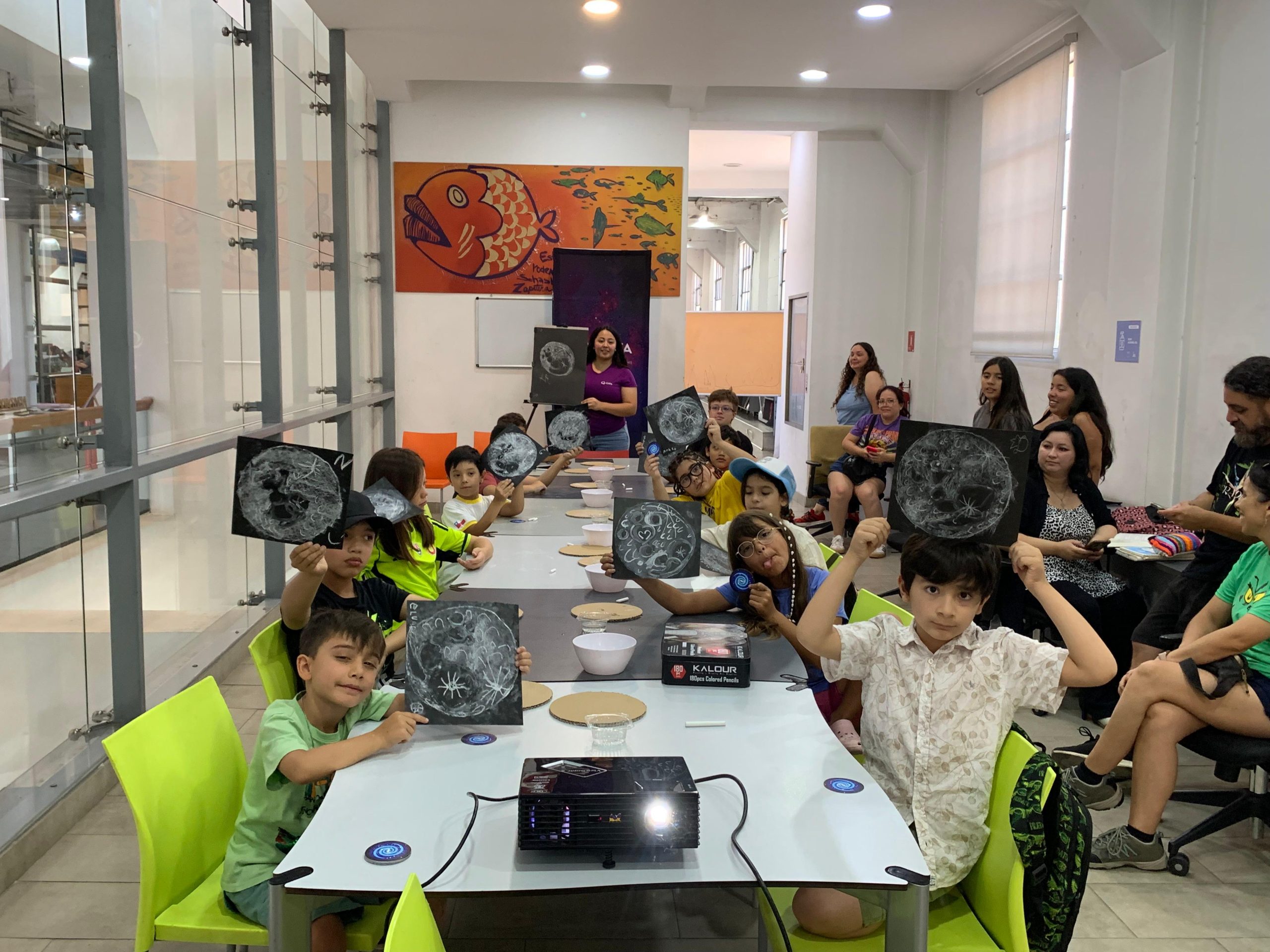 Publicado el: 09/02/2026Astronomy Day was held at the Santiago Library
Publicado el: 09/02/2026Astronomy Day was held at the Santiago Library -
 Publicado el: 30/01/2026Looking ahead to the next five years: Galaxies Area meets to share progress and strengthen research
Publicado el: 30/01/2026Looking ahead to the next five years: Galaxies Area meets to share progress and strengthen research -
 Publicado el: 29/01/2026Will Earth have two moons until 2083? The idea behind object 2025 PN7
Publicado el: 29/01/2026Will Earth have two moons until 2083? The idea behind object 2025 PN7
Categories list
- Acknowledgments 24
- Astrobiology 8
- AstroCluster 1
- Black holes 19
- Corporativo 62
- Cosmology 5
- Descubrimientos 25
- Disclosure 78
- Exoplanets 15
- Extension 6
- Galaxies 23
- Galaxies formation 7
- Inter y Transdisciplina 4
- Local Universe 17
- Publications 7
- Sin categorizar 36
- Solar System 24
- Stellar formation 8
- Technology 18
- Technology Transfer 20
